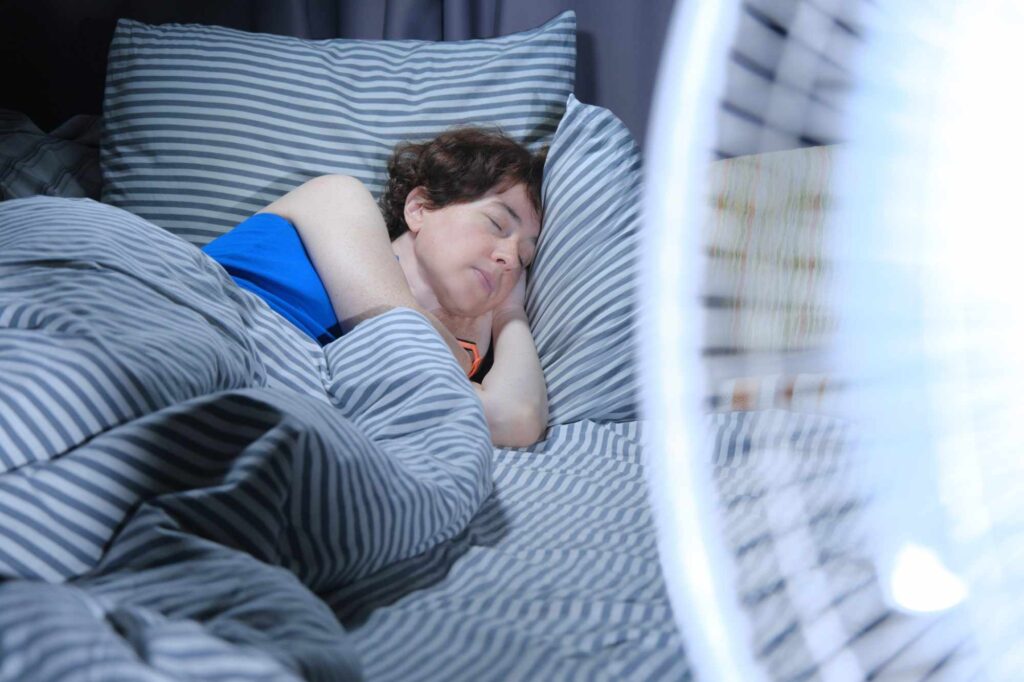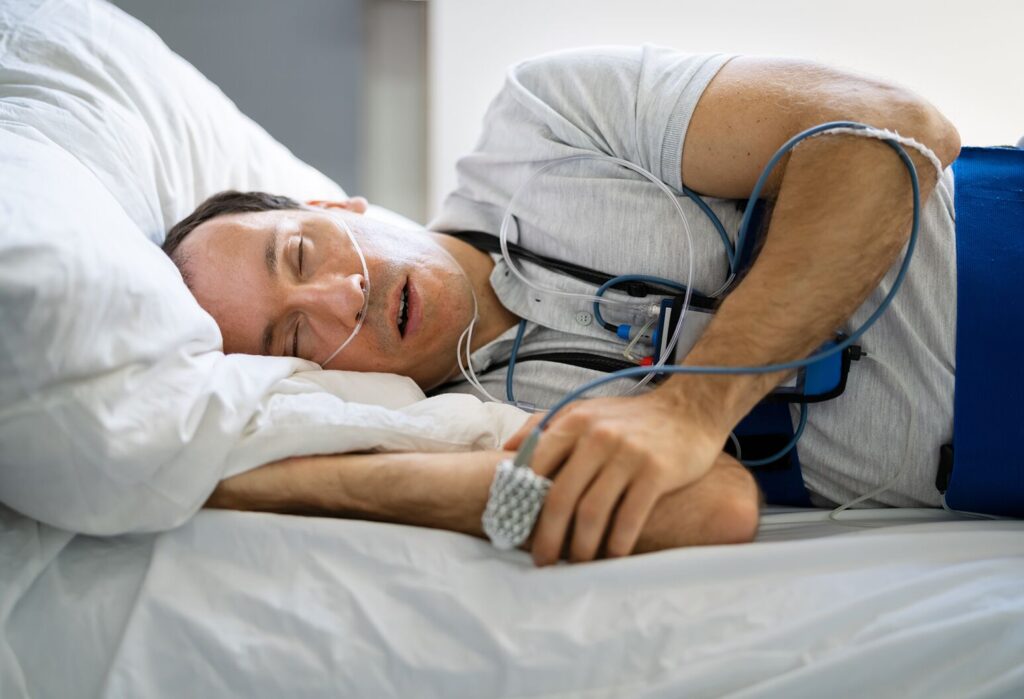Understanding Sleep Testing
Sleep testing is a crucial step for anyone struggling with sleep-related issues. It involves a thorough assessment of sleep patterns, behaviours, and physiological responses during sleep. This process can help identify sleep disorders such as sleep apnoea, insomnia, or restless leg syndrome, allowing for targeted treatment and improved quality of life.
In the vibrant city of Orange, sleep testing has become increasingly accessible, providing residents with the opportunity to address their sleep concerns in a straightforward manner. With advancements in technology and a growing awareness of the importance of sleep health, individuals can now seek help more easily than ever.
The Importance of Sleep
Sleep is not merely a time for rest; it is a vital component of overall health and well-being. During sleep, the body undergoes essential processes such as cell repair, memory consolidation, and hormone regulation. Insufficient or poor-quality sleep can lead to a myriad of health issues, including obesity, diabetes, cardiovascular diseases, and mental health disorders.

Sleep testing Orange provides a straightforward path to better rest for individuals struggling with sleep-related issues. By understanding the importance of sleep, the types of tests available, and the benefits of seeking professional help, individuals can take proactive steps towards improving their sleep health.
Recognising the significance of sleep can motivate individuals to seek out sleep testing services. By understanding the potential consequences of untreated sleep disorders, people are encouraged to take action and prioritise their sleep health.
Types of Sleep Tests
There are several types of sleep tests available, each designed to assess different aspects of sleep. The most common types include:
- Polysomnography (PSG): This comprehensive overnight study records brain waves, oxygen levels, heart rate, and breathing patterns, providing a detailed overview of sleep stages and disturbances.
- Home Sleep Apnoea Testing (HSAT): A more convenient option, this test can be conducted at home using portable monitoring devices. It typically focuses on detecting sleep apnoea.
- Actigraphy: This method involves wearing a wrist device that tracks movement patterns over several days, offering insights into sleep-wake cycles.
Each type of test has its advantages and is suited to different situations. A healthcare professional can help determine which test is most appropriate based on individual symptoms and concerns.
Why Choose Sleep Testing in Orange?
Orange is home to a variety of healthcare providers specialising in sleep medicine. Choosing to undergo sleep testing in this region offers several benefits, including access to qualified professionals, modern facilities, and tailored treatment plans.
Moreover, the community in Orange is increasingly recognising the importance of sleep health, leading to a supportive environment for those seeking help. This cultural shift encourages open discussions about sleep issues, reducing stigma and promoting proactive approaches to health.

Qualified Professionals
In Orange, sleep testing services are provided by qualified sleep specialists, including pulmonologists, neurologists, and psychologists. These professionals possess the expertise to diagnose and treat various sleep disorders effectively. Their experience ensures that patients receive accurate assessments and appropriate recommendations for their unique situations.
Furthermore, many healthcare providers in the area are committed to ongoing education and staying updated with the latest advancements in sleep medicine. This dedication to professional development enhances the quality of care available to residents. Learn more about medicine at https://uag.edu/blog/what-is-the-difference-between-basic-medicine-and-clinical-medicine
State-of-the-Art Facilities
The facilities offering sleep testing in Orange are equipped with the latest technology, ensuring accurate and reliable results. Comfortable sleep study rooms are designed to mimic a home environment, enabling patients to relax and obtain a true representation of their sleep patterns.
In addition to advanced equipment, these facilities often provide comprehensive support services, including consultations, follow-up appointments, and access to educational resources. This holistic approach ensures that patients receive the care they need throughout their journey to better sleep.
The Sleep Testing Process
Understanding the sleep testing process can alleviate any concerns or apprehensions individuals may have. The journey typically begins with a consultation with a healthcare provider, who will discuss symptoms, medical history, and lifestyle factors that may affect sleep.
Following this initial assessment, the provider may recommend a specific type of sleep test based on the information gathered. Patients will receive detailed instructions on how to prepare for the test, which may include lifestyle modifications or adjustments to medications.
Preparation for Sleep Testing
Preparation is essential to ensure accurate results from sleep testing. Patients may be advised to avoid caffeine and alcohol in the days leading up to the test, as these substances can interfere with sleep quality. Additionally, maintaining a consistent sleep schedule can help establish a baseline for the assessment.
On the night of the test, patients will arrive at the facility and be guided through the setup process. Sensors will be placed on the body to monitor various physiological parameters, and patients will be encouraged to relax and sleep as they normally would.
Interpreting Results
Once the sleep test is complete, the data will be analysed by a sleep specialist. The results will provide insights into sleep architecture, disturbances, and any underlying sleep disorders. Patients will then receive a follow-up appointment to discuss the findings and potential treatment options. To read more about disturbances click here.
Understanding the results is crucial for patients, as it empowers them to take control of their sleep health. Treatment plans may include lifestyle changes, behavioural therapies, or medical interventions, depending on the specific diagnosis.
Common Sleep Disorders Diagnosed Through Testing
Sleep testing can identify a range of sleep disorders, each with its unique characteristics and treatment approaches. Some of the most common disorders diagnosed through testing include:
Obstructive Sleep Apnoea (OSA)
OSA is characterised by repeated interruptions in breathing during sleep, often due to a blockage in the upper airway. Symptoms include loud snoring, gasping for air during sleep, and excessive daytime sleepiness. Treatment options may include lifestyle changes, continuous positive airway pressure (CPAP) therapy, or surgical interventions.
Insomnia
Insomnia involves difficulty falling asleep, staying asleep, or waking too early. It can be caused by various factors, including stress, anxiety, or medical conditions. Treatment often includes cognitive behavioural therapy for insomnia (CBT-I), medication, or lifestyle modifications to improve sleep hygiene.
Restless Legs Syndrome (RLS)
RLS is characterised by an uncontrollable urge to move the legs, often accompanied by uncomfortable sensations. This condition can disrupt sleep and lead to daytime fatigue. Treatment may involve lifestyle changes, iron supplementation, or medications to alleviate symptoms.
Enhancing Sleep Health Beyond Testing
While sleep testing is a vital step in addressing sleep disorders, maintaining good sleep hygiene is equally important. Simple lifestyle changes can significantly enhance sleep quality and overall health.
Establishing a Sleep Routine
Creating a consistent sleep schedule can help regulate the body’s internal clock. Going to bed and waking up at the same time every day, even on weekends, can improve sleep quality. Additionally, establishing a calming pre-sleep routine, such as reading or practising relaxation techniques, can signal the body that it is time to wind down.
Optimising the Sleep Environment
The sleep environment plays a crucial role in promoting restful sleep. Ensuring the bedroom is dark, quiet, and cool can create an ideal setting for sleep. Investing in a comfortable mattress and pillows can also enhance comfort and support during the night.
Limiting Stimulants and Screen Time
Avoiding caffeine and nicotine in the hours leading up to bedtime can help prevent sleep disturbances. Furthermore, reducing screen time from electronic devices before bed can minimise exposure to blue light, which can interfere with the body’s production of melatonin, the hormone responsible for regulating sleep.
Conclusion
With qualified professionals, state-of-the-art facilities, and a supportive community, residents of Orange have the resources they need to address their sleep concerns effectively. By prioritising sleep health and implementing positive lifestyle changes, individuals can enhance their quality of life and overall well-being.
Learn more at: How a Sleep Study Nowra Can Uncover the Real Cause of Your Fatigue

